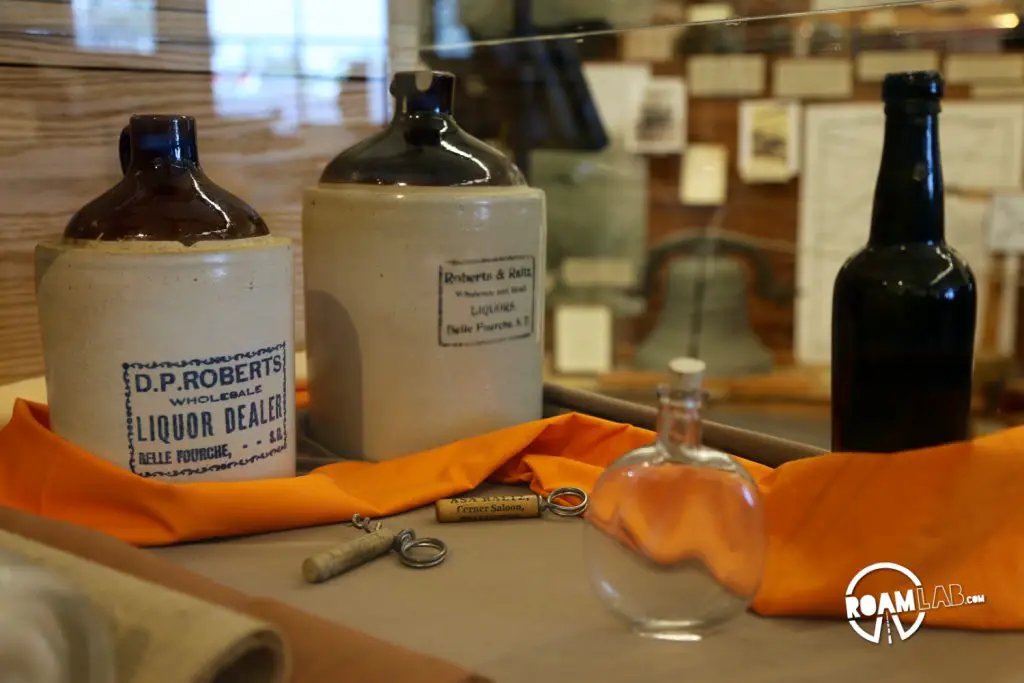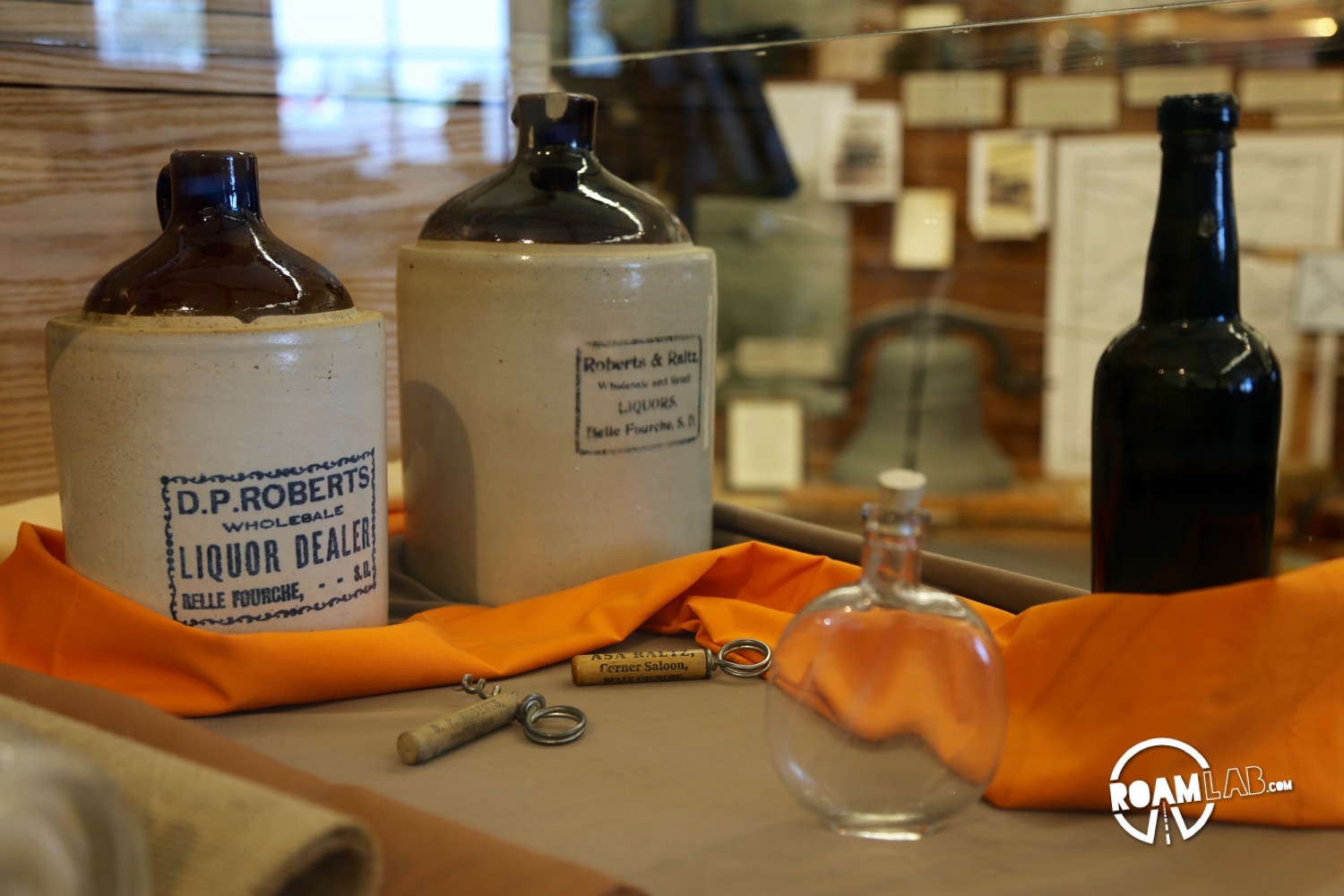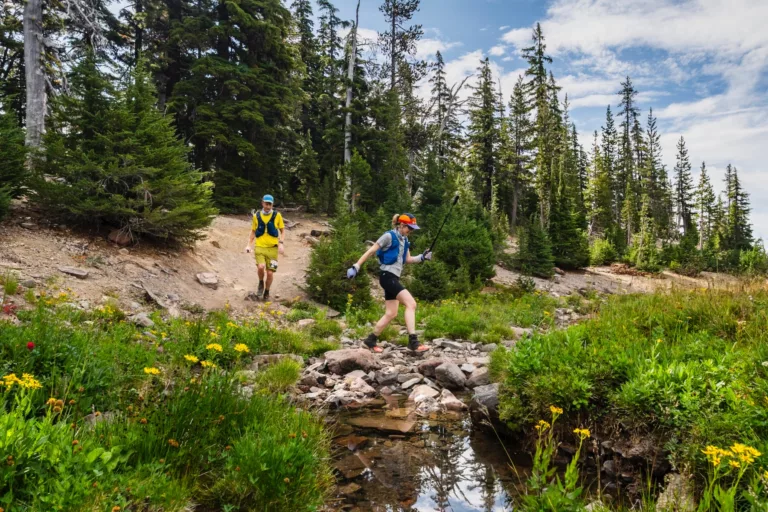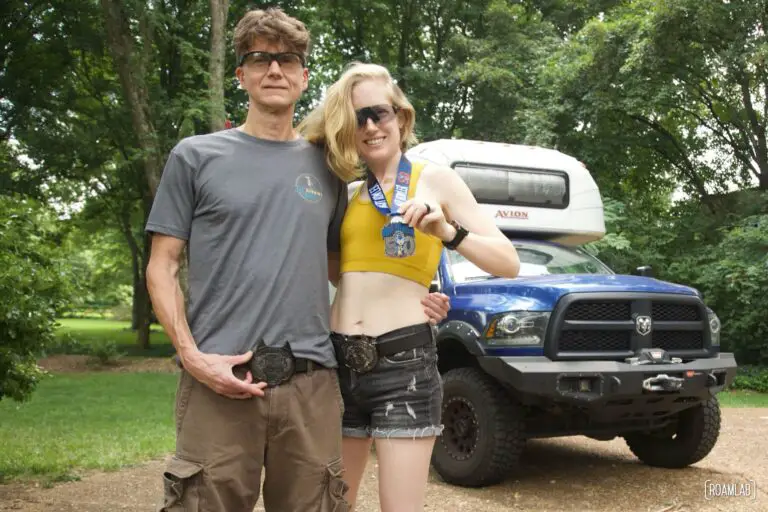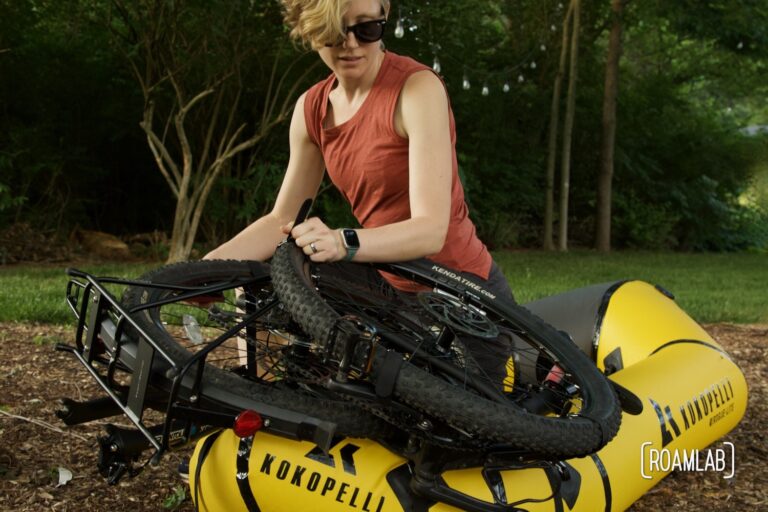Next to the Geographic Center of the Nation (or, at least, its monument) is the Tri-State Museum. This one-room collection of community artifacts in Belle Fourche, South Dakota includes memorabilia and oddities from prehistoric fossils, cattle ranching, WWII, and modern industries.
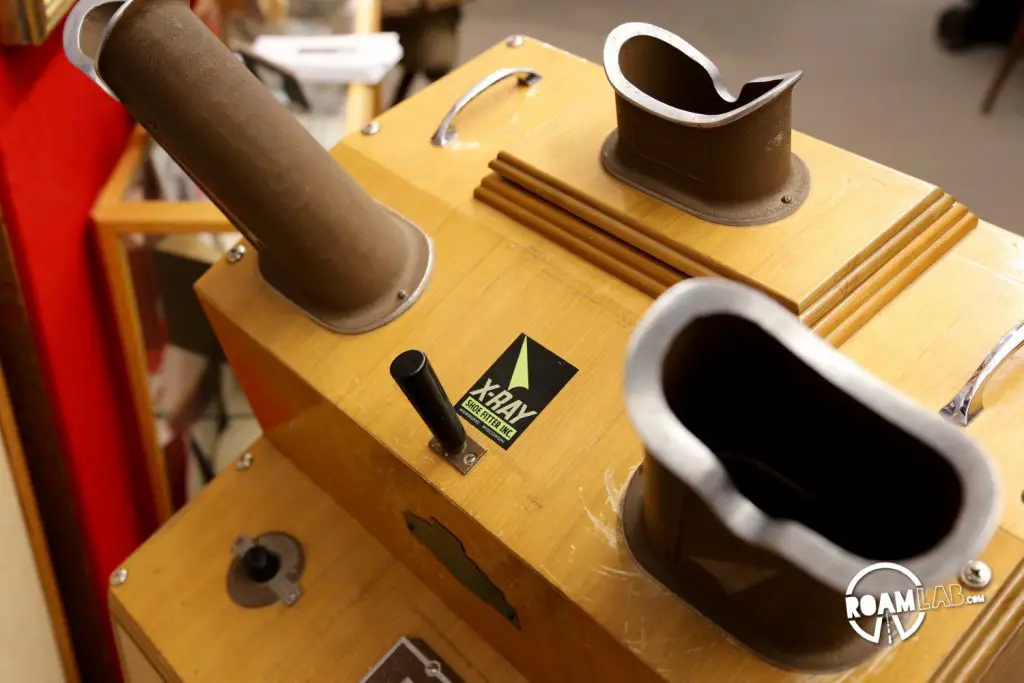
Belle Fourche was named by French trappers after the Belle Fourche River, which travels through town. The French connection explains the confusing spelling and pronunciation of the town: “bel-foosh.” It was a popular fur trading rendezvous point were trappers gathered to exchange goods and news. A gold rush in 1876 not only brought in miners to the area but farmers and ranchers. Agriculture flourished and the Tri-State Museum catalogs many historic points in the industry of the region, particularly cattle ranching and the rodeo culture that developed out of it.
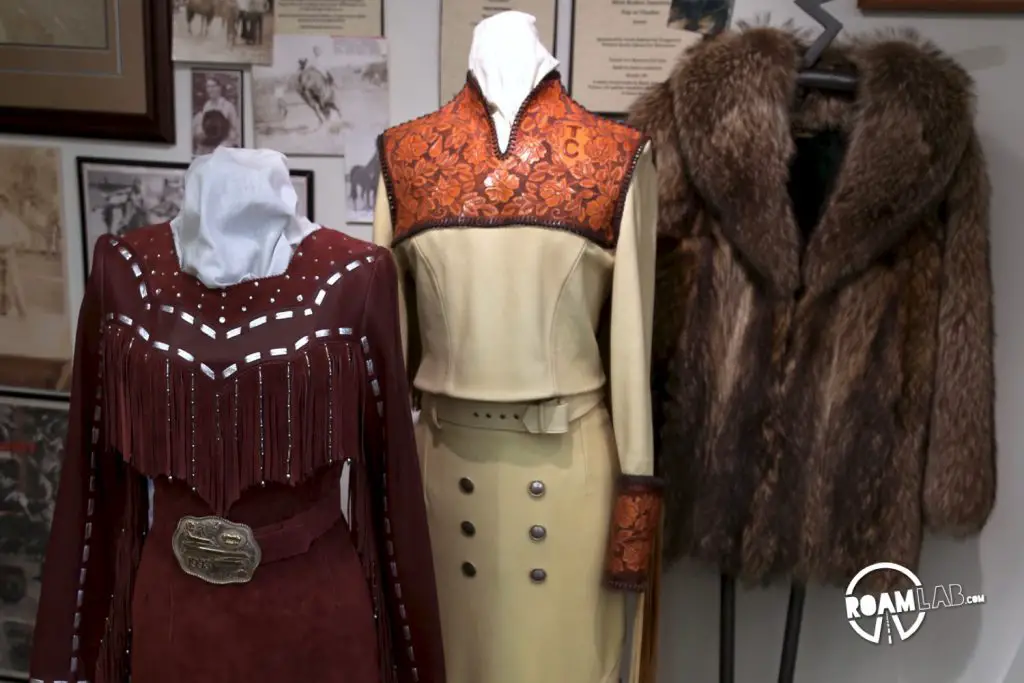
There aren’t many community museums that have casts of locally discovered dinosaur bones. The Tri-State Museum has a large case featuring a massive leg bone to awe any child at heart.
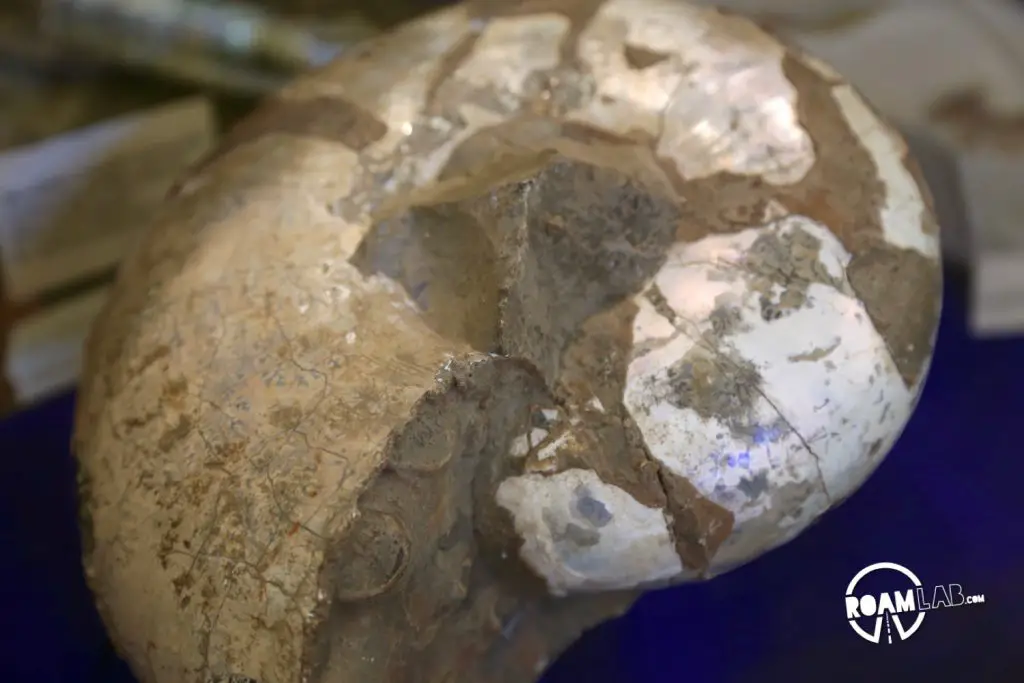
Like many community museums, there is a section dedicated to the servicemen who fought for the United States. Along with uniforms, is a large collection of Nazi items pinned on boards like so many butterflies on display. One corner display relates how German POWs in WWII were held in the center of the nation through the duration of the war. The Geneva Convention allows for POWs to be put to work and this particular group manned sugar beat production in the absence of the local young men fighting over seas. While initially hostile, the museum reports that German POWs came to appreciate work over the dangers and poor conditions of the battlefield.
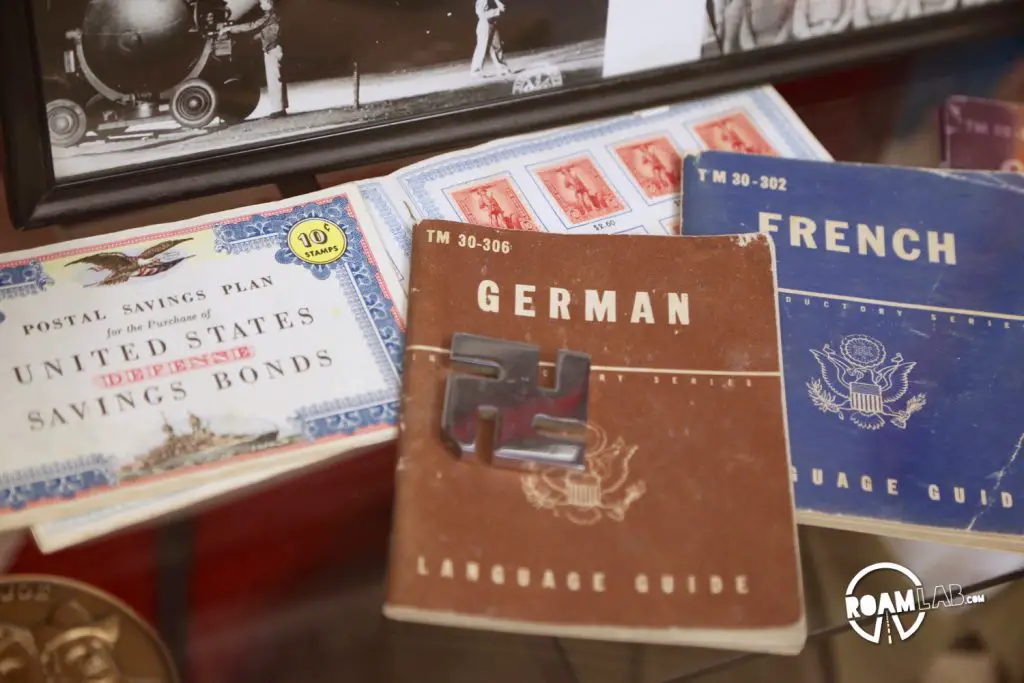
Is the Tri-State Museum worth a trip to visit? Probably not. But if you are stopping to get your picture at the Center of the Nation, might as well take an extra twenty minutes to browse the neighboring displays.
